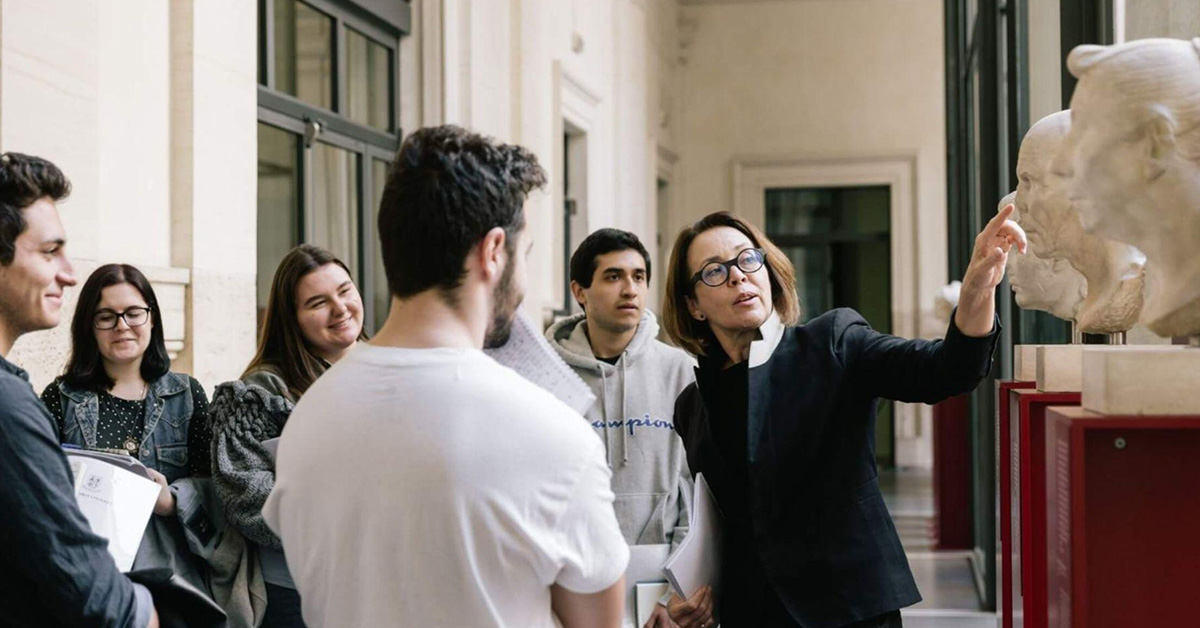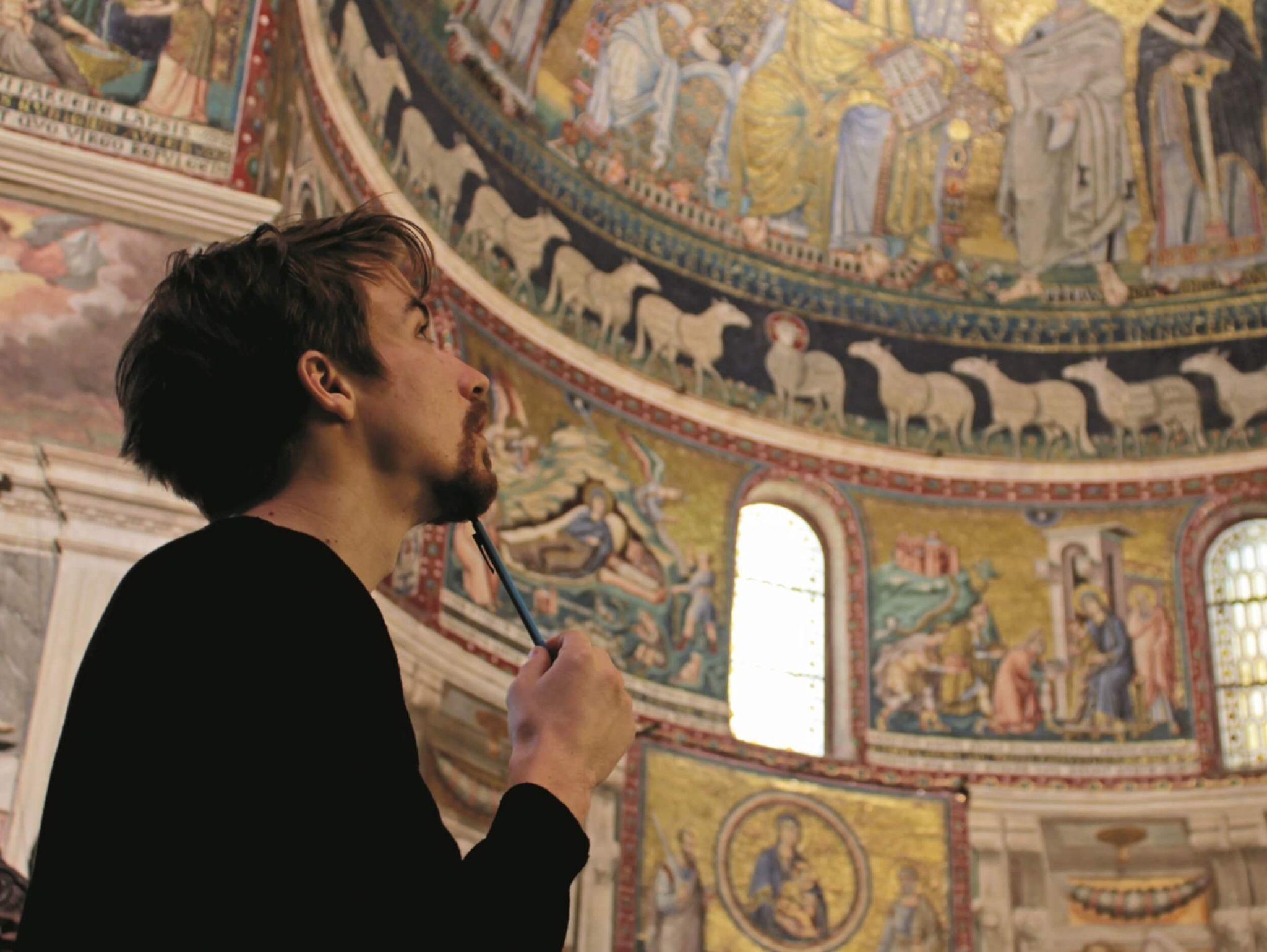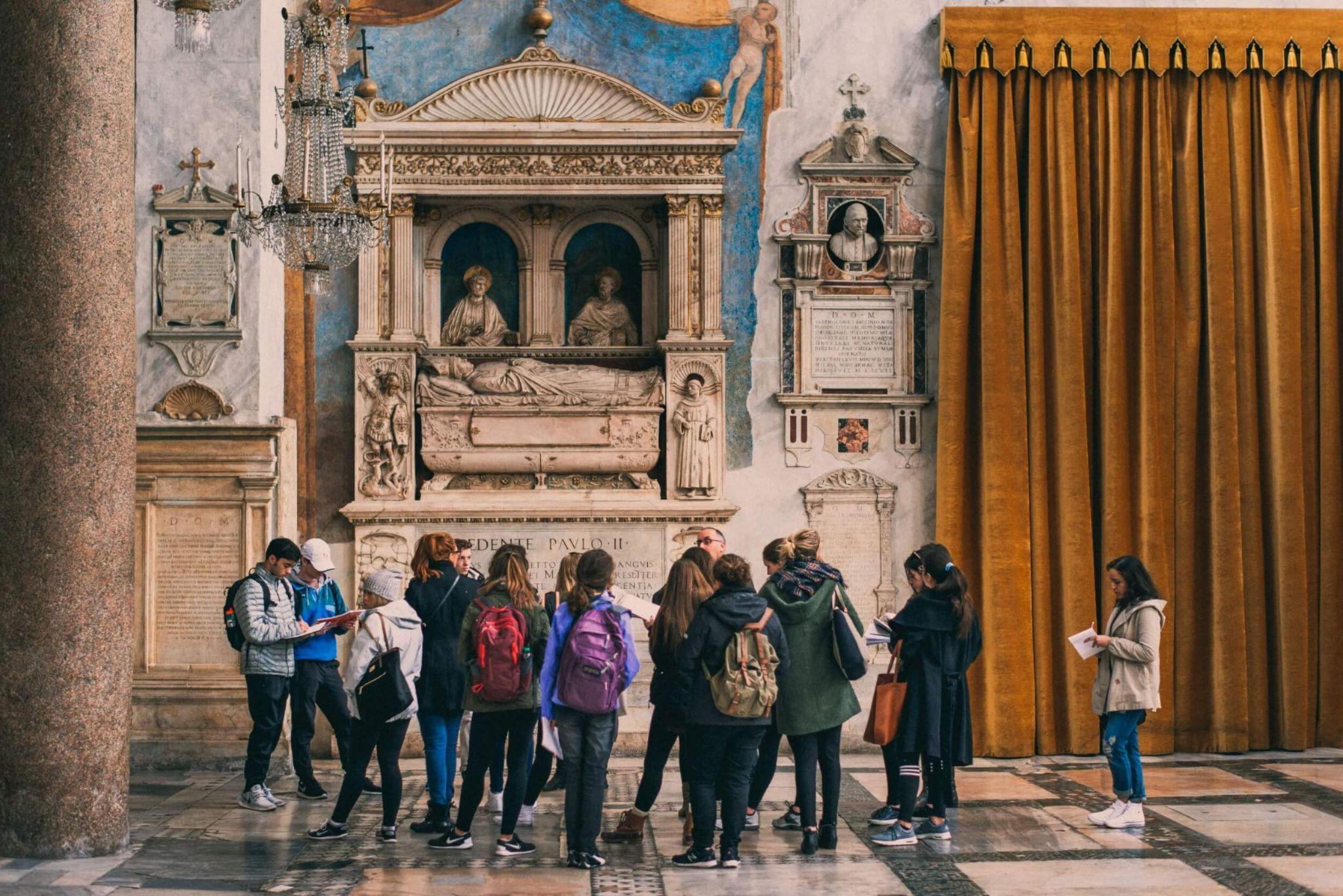

Classical Studies is a branch of the humanities typically centered on the ancient Roman and Greek civilizations. Thanks to the extensive body of literature and archeological evidence from this time, today’s scholars can uncover secrets from the past that can help lay the groundwork for a better tomorrow. A degree in Classical Studies at John Cabot University offers a rich and diverse array of career benefits. Graduates are highly valued for their critical thinking skills, honed by analyzing complex historical texts and cultural artifacts.
This degree cultivates an acute attention to detail and a nuanced understanding of cultural and historical contexts. It produces excellent graduates for careers such as education, where they can teach history or literature. The strong analytical and writing skills students gain are assets in sectors like publishing, journalism, and law.
The global perspective gained from studying ancient civilizations is particularly beneficial in roles involving international relations or cultural preservation. Rome is the perfect place to earn a degree in Classical Studies as a major world power with a rich history. In addition to basic classical theory, students gain access to many fascinating electives that allow them to follow their natural sense of curiosity.
1. Explore Another World Through Classical Mythology
When you take classical studies in Rome, consider our Classical Mythology course. This fascinating journey traces the evolution of myths from the Bronze Age to Late Antiquity, spanning the vast Mediterranean landscape from Mesopotamian cities to Greek islands and the hills of Rome. Our course explores the fantastical tales of gods, goddesses, heroes, and extraordinary mortals. It delves into how ancient societies used these stories to make sense of their world – from natural phenomena to the complexities of human emotions.
 Learn how classical mythology affected ancient life when you major in classical studies
Learn how classical mythology affected ancient life when you major in classical studies
As myths formed a common language among diverse communities, this course doubles as an insightful introduction to life in the ancient Mediterranean. Myths weren't just stories but integral to understanding identity, community, history, and relationships with neighbors and the broader world. From festival recitations to theatrical portrayals, myths influenced religious practices, justified wars, and bolstered political agendas.
2. Uncover the Secrets of Magic and Witchcraft in Medieval and Early Modern Europe
Fewer subjects throughout history have stirred up as much intrigue and curiosity as the supernatural. Embark on a captivating exploration of magic and witchcraft in medieval and early modern Europe in this unique course. Delve into the rise and decline of these mystical beliefs up to the height of the "witch craze." This course comprehensively studies the social, cultural, literary, judicial, religious, and gendered aspects of magic and witchcraft, tracing their origins in classical traditions and popular folklore.
 Explore the captivating history of magic when you take classical studies in Rome
Explore the captivating history of magic when you take classical studies in Rome
Students will engage with primary sources like the infamous "Hammer of Witches" and early modern trial records, alongside intellectual debates on the reality of magic and witchcraft. This course provides a multidisciplinary approach, examining the formation of beliefs around magic, superstition, heresy, and the gendering of witchcraft.
3. Discover Modern Applications of the Field When You Take Classical Studies in Rome
One defining characteristic of the classical world was technological advancement. Your major in Classical Studies invites you to draw parallels between antiquity, contemporary times, and possibilities for the future. Discover the intersection of technology and critical thought in our groundbreaking course on Artificial Intelligence (AI) and Artistic Practices. This course delves into the latest AI developments, examining their transformative impact on creativity, authorship, and labor. Engage with the work of diverse artists, scholars, and activists, and explore how AI redefines the boundaries of artistic expression. You'll gain insights into the material aspects of AI, its environmental impact, and the ethical implications of dataset compilation and Large Language Model (LLM) training. The course adopts a decolonial lens, scrutinizing how technology, historically a tool of colonialism, perpetuates power dynamics in contemporary AI advancements.
Are you ready to attend John Cabot?
Contact us to learn more!




